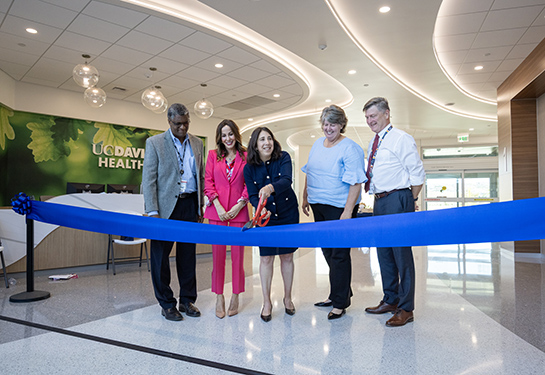Smoking increases the risk of illness and viral infection, including type of coronavirus
A new study led by UC Davis Comprehensive Cancer Center researchers shows that current smokers have a 12% increased risk of a laboratory-confirmed viral infection and a 48% increased risk of being diagnosed with respiratory illnesses. These results did not vary by type of virus, including a coronavirus.

In combination with past findings, the current findings published today in the Nicotine and Tobacco Research journal support urgent recommendations to increase tobacco control efforts for countering COVID-19.
“Past research has shown that smoking increases the risk of COVID-19 disease severity, but the risk of infection had been less clear,” said UC Davis tobacco researcher and lead author of the study Melanie Dove. “Our study findings show smokers have an increased risk of viral infection, including a coronavirus and respiratory illness.”
Study results
The researchers re-analyzed data from the British Cold Study (BCS), a 1986-1989 challenge study that exposed 399 healthy adults to 1 of 5 “common cold” viruses. This included a type of common coronavirus (coronavirus 229E) that existed prior to the novel coronavirus (SARS-CoV-2 virus), which causes COVID-19 disease. Data from the British Cold Study is available on the Carnegie Mellon University The Common Cold Project website
The UC Davis researchers calculated overall and coronavirus-specific unadjusted and adjusted relative risks for current smokers and each outcome (infection and illness), testing whether each association was modified by type of respiratory virus.
The data showed that current smokers had an increased risk of respiratory viral infection and illness, with no significant difference across the types of viruses. The increased associations for only the coronavirus 229E did not reach statistical significance. This was likely due to the small sample size with only 55 participants, of whom 20 were smokers.
These findings are consistent with known harms caused by smoking to immune and respiratory defenses and some observational evidence of increased COVID-19 infection and disease progression in current smokers.

“Besides examining associations by type of virus, a key reason we re-analyzed the original British Cold Study is to report a risk ratio instead of an odds ratio,” Dove explained. “Odds ratios may overestimate the strength of an association if an event is not rare (>10%), so our results are a little lower (1.48 compared with 2.1 in the BCS). The relative risks from this study can provide an estimate of the strength of associations that can be used to guide tobacco control decisions.”
Compared to other study designs, the BCS is considered a high-quality study because of its randomized trial design, little missing data, clear smoking status definitions, and laboratory-confirmed data. Observational studies have limitations. These include current smokers being more likely to get tested due to increased symptoms and smoking status being under-reported in electronic health records. Additionally, infected individuals who stop smoking immediately prior to testing or hospitalization are often recorded as a non-smoker or former smoker.
One of the main limitations of this study is that the mild common coronavirus 229E may have different biological and health effects than other coronaviruses, including SARS-CoV-2. In other words, the findings may not be generalizable to other coronaviruses.
“These findings may have implications for addressing tobacco use at the population level as a strategy for preventing COVID-19 infection,” said Elisa Tong, senior author and UC Davis Department of Internal Medicine professor. “A quarter of the U.S. population currently smokes or has high levels of cotinine, a nicotine metabolite, and there is no safe level of smoke exposure for nonsmokers. Global tobacco control is urgently important too, as many countries have even higher smoking prevalence rates.”
Other UC Davis researchers who participated in the study included Bruce Leistikow and Nossin Khan from the Department of Public Health Sciences.
Dove was supported by the National Center for Advancing Translational Sciences, National Institutes of Health, through grant number UL1 TR001860 and linked award KL2 TR001859.
UC Davis Comprehensive Cancer Center
UC Davis Comprehensive Cancer Center is the only National Cancer Institute-designated center serving the Central Valley and inland Northern California, a region of more than 6 million people. Its specialists provide compassionate, comprehensive care for more than 100,000 adults and children every year and access to more than 200 active clinical trials at any given time. Its innovative research program engages more than 240 scientists at UC Davis who work collaboratively to advance discovery of new tools to diagnose and treat cancer. Patients have access to leading-edge care, including immunotherapy and other targeted treatments. Its Office of Community Outreach and Engagement addresses disparities in cancer outcomes across diverse populations, and the cancer center provides comprehensive education and workforce development programs for the next generation of clinicians and scientists. For more information, visit cancer.ucdavis.edu.





